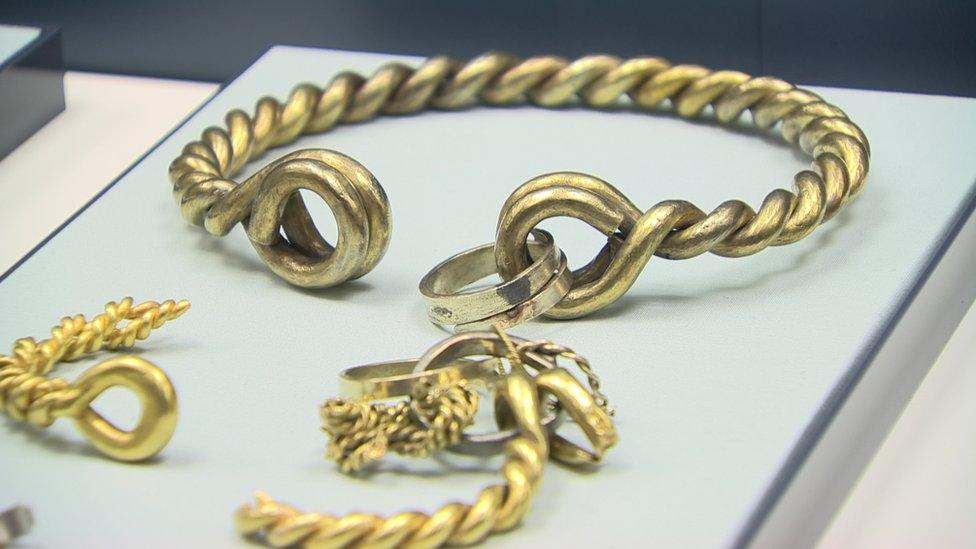Lincolnshire Roman coin hoard 'is largest find in Britain'
- Published
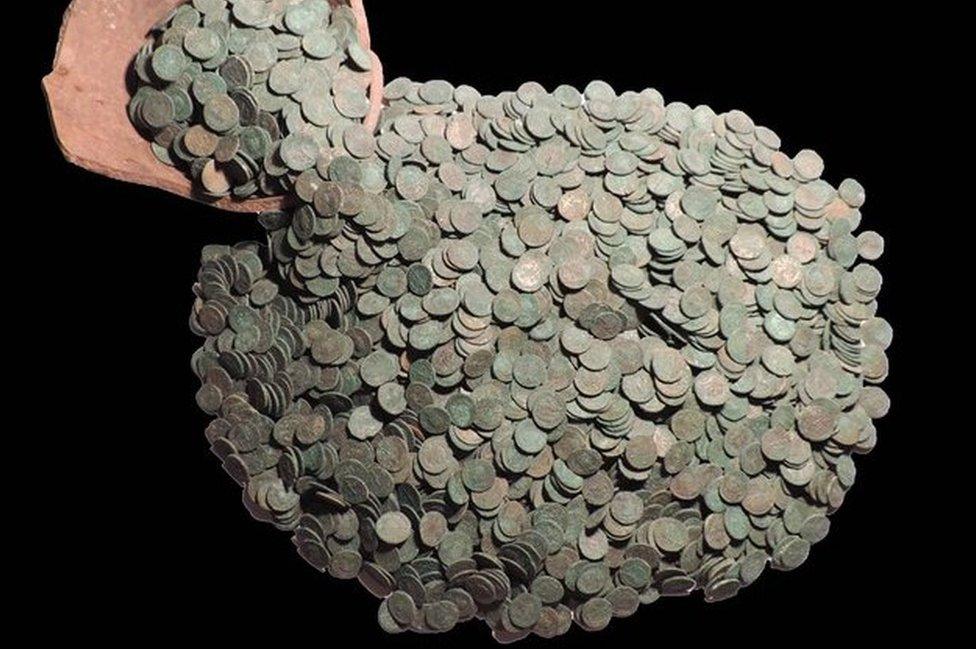
The coins are currently being valued by the British Museum
A hoard of early 4th Century Roman coins is believed to be the largest of its type ever discovered in Britain.
More than 3,000 copper alloy coins were found by two metal detectorists near the village of Rauceby, Lincolnshire, in July 2017.
Archaeologists say the coins were possibly buried as part of a ceremony, or commemoration.
The coins have now been declared as treasure following an inquest hearing in Lincoln.
Lincolnshire County Council archaeologist Adam Daubney, said the coins were found in a ceramic pot, buried in a large oval pit.
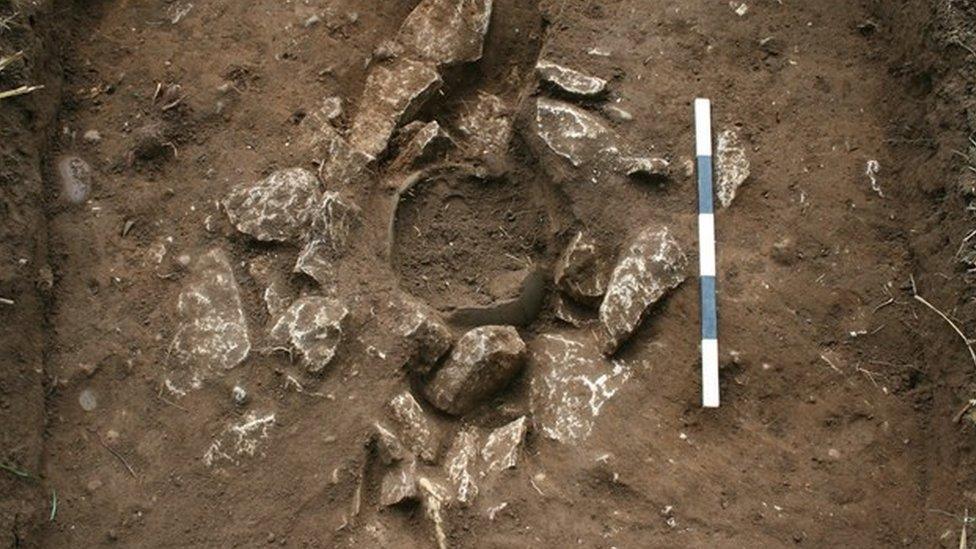
The coins may have been buried as part of a "ceremonial or votive offering"
"What we found during the excavation suggests to me that the hoard was not put in the ground in secret, but rather was perhaps a ceremonial or votive offering."
"Unfortunately, we don't know for sure and might never know," he said.
"[But] what we do know is the coins date to the time Constantine was declared emperor in York (306 AD).
"Whether the two are related we don't know, but what is clear this is not your average hoard."
Mr Daubney said anyone finding an object believed to be more than 300 years old and containing precious metal must declare it.
However, he said landowners and finders would normally be compensated if a museum wanted to purchase the treasure.
In terms of a fee in this case, he said: "I have no idea of a precise figure, but it will certainly reach into tens of thousands of pounds."
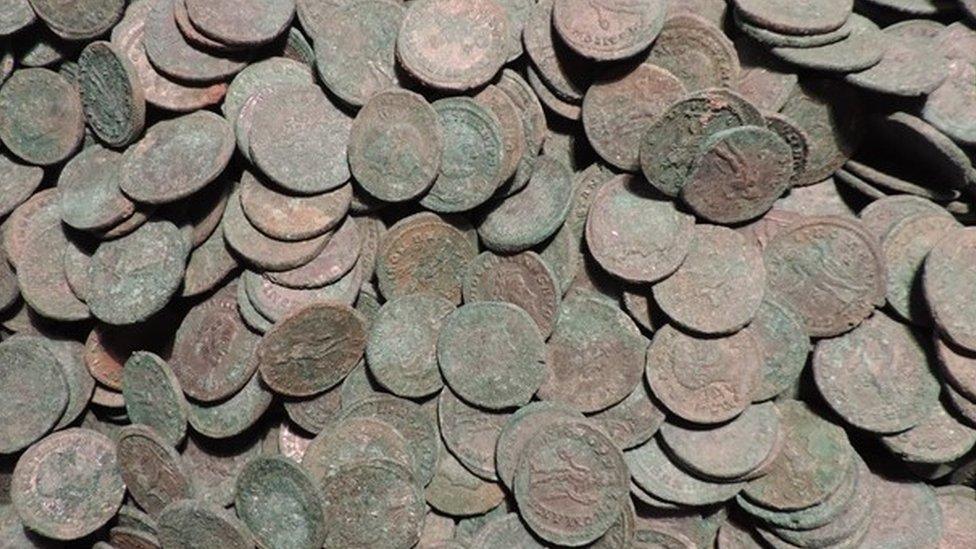
The coins are now in the care of the British Museum
The coins are now with the British Museum for valuation.
Dr Eleanor Ghey, curator of Iron Age and Roman Coin Hoards, said: "As the largest fully-recorded find of this date from Britain, it has great importance for the study of this coinage and the archaeology of Lincolnshire".

Follow BBC East Yorkshire and Lincolnshire on Facebook, external, Twitter, external, and Instagram, external. Send your story ideas to yorkslincs.news@bbc.co.uk, external.
- Published17 April 2019

- Published27 April 2017
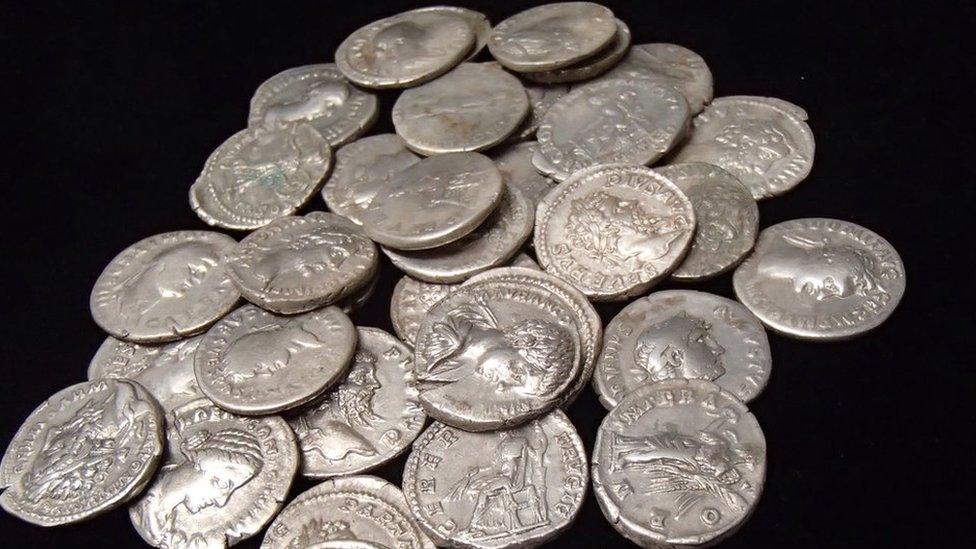
- Published18 January 2019
